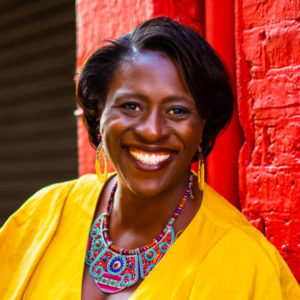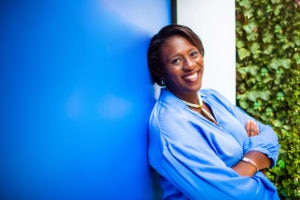
Leadership support
Leadership will grasp at your heart and squeeze. It will test, challenge and set you ablaze. I have never felt more alive and conversely felt that life was over, than when I was at the top of leadership of my organisation.

I had the childhood of my dreams, growing up in Camberwell, South London. People now would call it disadvantaged. I loved it. We had a place called ‘the dump’ at the back of the council estate where we lit bonfires and put all the shopping trolleys, all that kind of stuff. It was great.
I was a loved little girl. I remember feeling really special. The vocabulary in my house was, ‘You are number one‘(I was the firstborn), ‘You are going to university, you are going to be a doctor, a lawyer or a dentist.’ I had Nigerian parents, there was no choice.
When I told my mum one day I was thinking of becoming a journalist, she just kissed her teeth and ignored me. When I said to my dad, ‘I really enjoy art and pottery,’ he looked up from his paper. ‘Art? Art? What’s that?’
Dad, dad, no, look. Drawing, painting, it brings out the creativity in me.
‘For you, yeah. Leisure, no problem. You’ll be a doctor.’
My parents chose my GCSE options in year 9. They came along to the parents evening.
‘She’ll be doing…’ And they would pick the ones that were appropriate.
‘But she can do arts for relaxation.’ then they ticked that one for me.
My parents said NO to our circumstance.
They did what they had to, to ensure that this little girl didn’t lead the life of a stereotypical ‘pupil premium’ child.
We didn’t have the language in those days, we didn’t call it a pupil premium.
We didn’t call it anything. But I now have the life that they envisaged for me.
Courageous parents on a council estate in the ‘70s in South London.
I also had courageous teachers, who were advocates. They stood in the gap, they stood alongside me. I had no idea they were doing this, not a clue. I thought it was all me, but they stood the gap for my potential.
Behind the teachers that I knew, the teachers that I loved in my lessons, were great leaders. The decisions they took have affected my life greatly.
Today I stand on the shoulders of leadership giants.
I am grateful
D


Leadership will grasp at your heart and squeeze. It will test, challenge and set you ablaze. I have never felt more alive and conversely felt that life was over, than when I was at the top of leadership of my organisation.

Leaders give yourselves that internal permission… The permission to hope The permission to be brave The permission to be curious about what is possible
